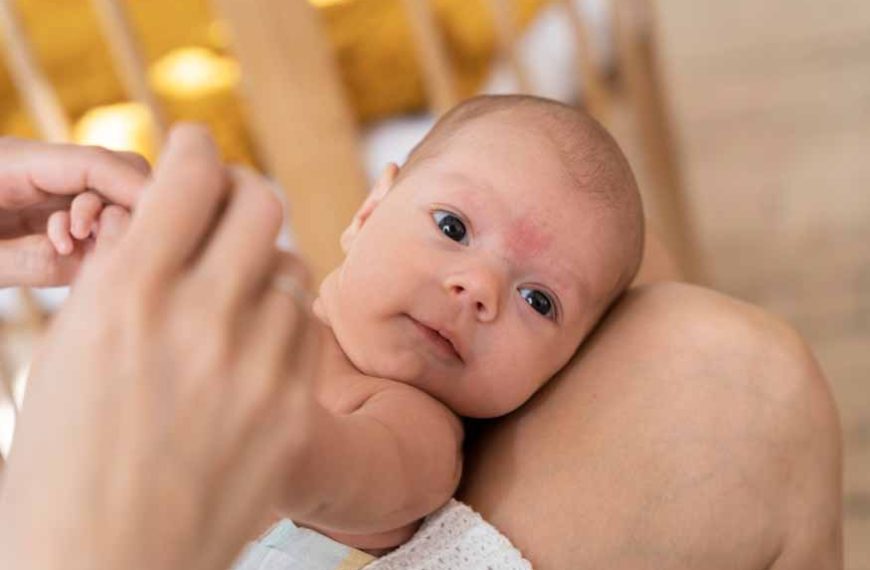Acne is not just a teenage dilemma; it can also occur in newborns and infants. Understanding the causes and remedies for infantile acne, along with helpful skincare tips, is crucial for new parents who might be concerned about these unexpected skin changes in their babies. This article delves into the phenomenon of acne in babies, focusing on infantile acne, its stages, and treatments.
What is Infantile Acne?
Infantile acne, or baby acne, is a common skin condition that affects newborns and infants. Unlike acne in older children and adults, which is often linked to hormonal changes and oil production, acne in babies usually appears due to other factors.
Causes of Baby Acne
The exact causes of baby acne are not entirely understood, but it is believed to be partly due to hormonal influences. Hormones from the mother can cross over to the baby during the final stages of pregnancy, stimulating the baby’s oil glands. This hormonal influx, combined with the immature skin of the infant, can result in acne.
Stages of Baby Acne
Baby acne typically develops within the first few weeks after birth and can last up to a few months. It generally goes through several stages:
- Initial Breakout:
- Full Development:
- Healing Phase:
Small red or white bumps appear on the baby’s face, often concentrated on the cheeks, forehead, and chin.
The acne may become more pronounced, with the emergence of pustules and more extensive redness.
Gradually, the acne subsides, leaving the baby’s skin clear. This process might take a few weeks to a few months.
Symptoms of Infantile Acne
The primary symptom of infantile acne is the presence of small red or white bumps on the baby’s face. These bumps can be isolated or clustered. While it typically doesn’t cause discomfort to the baby, severe cases might be irritating or itchy.
Baby Acne Treatment
In most cases, baby acne is a temporary condition that resolves on its own without any specific treatment. However, there are some general guidelines and remedies that can help manage and reduce the severity of acne:
- Gentle Cleansing:
- Avoid Oily Products:
- No Squeezing or Picking:
- Comfort Measures:
- Patience:
Use mild, fragrance-free baby soap and lukewarm water to gently clean the baby’s face once a day. Avoid scrubbing as this can irritate the skin.
Refrain from using oily or greasy skincare products, as these can exacerbate acne.
Avoid squeezing or picking at the acne, as this can cause infection and scarring.
If the acne seems to be irritating your baby, consult your paediatrician for suitable remedies.
It’s essential to be patient and allow the acne to resolve naturally over time.
Continuing from where we left off, let’s delve deeper into the topic of infantile acne, exploring additional insights and addressing common concerns that parents might have.
Understanding Hormonal Influences
As mentioned earlier, hormonal fluctuations are believed to be a primary factor in the development of baby acne. During the final stages of pregnancy, hormones from the mother transfer to the baby. These hormones, particularly androgens, stimulate the sebaceous glands in the baby’s skin, leading to the formation of acne.
Differentiating from Other Skin Conditions
Parents need to differentiate infantile acne from other common skin conditions that can occur in babies, such as:
- Milia:
- Eczema:
- Heat Rash:
Tiny white bumps, often on the nose, chin, or cheeks, caused by trapped keratin. Milia are not acne and usually clear up on their own.
A condition that causes red, itchy, and inflamed skin. Unlike acne, eczema may need specific treatment and is often linked to allergies or asthma.
Small red bumps caused by blocked sweat glands, often due to overheating or excessive sweating.
Consulting a paediatrician is the best way to get a proper diagnosis if you’re unsure about your baby’s skin condition.
Environmental and Lifestyle Factors
While the primary cause of baby acne is hormonal, environmental and lifestyle factors can exacerbate the condition:
- Irritants:
- Overheating:
- Skin Contact:
Skin care products, detergents, and saliva or milk residue can irritate a baby’s sensitive skin and worsen acne.
Overdressing or a warm environment can lead to sweating and irritation, possibly aggravating acne.
Excessive rubbing or pressure on the baby’s skin (e.g., from clothing or during cuddling) can also irritate the skin.
Home Remedies and Care Tips
Besides the basic care tips already mentioned, here are some additional suggestions for managing baby acne:
- Natural Oils:
- Hydration:
- Laundry Care:
Some natural oils like coconut oil have anti-inflammatory properties, but use them sparingly and with caution, as they can clog pores.
Keeping the baby’s skin well-hydrated can help. Use a gentle, fragrance-free moisturizer suitable for baby’s sensitive skin.
Wash baby’s clothing, bedding, and anything that touches their skin with fragrance-free, hypoallergenic detergent.
Myth Busting
There are several myths surrounding baby acne that need to be addressed:
- Diet and Breastfeeding:
- Predicting Future Acne:
The mother’s diet during breastfeeding rarely affects baby acne. However, if you have concerns, consult with your paediatrician.
Having baby acne does not necessarily mean the child will have acne issues later in life.
Emotional Support for Parents
It’s natural for parents to worry about any irregularities in their baby’s appearance. However, it’s important to remember that infantile acne is usually a temporary and harmless condition. Seeking support from fellow parents and healthcare professionals can be reassuring.
When to Seek Medical Advice
If the acne is severe, or persistent, or if you have concerns about your baby’s skin, it’s important to consult a paediatrician. In some cases, a doctor may prescribe a mild topical treatment to help clear the acne.
Infantile acne is a common and typically harmless condition that affects many newborns and infants. Understanding its causes, stages, and treatment options can reassure parents that this is a temporary phase in their baby’s development.
At EuroKids, we understand the concerns that come with early childhood development, including skin conditions like baby acne. Our approach is to provide a supportive and informative environment for both children and parents, ensuring that every aspect of your child’s health and well-being is addressed with care and expertise.
















